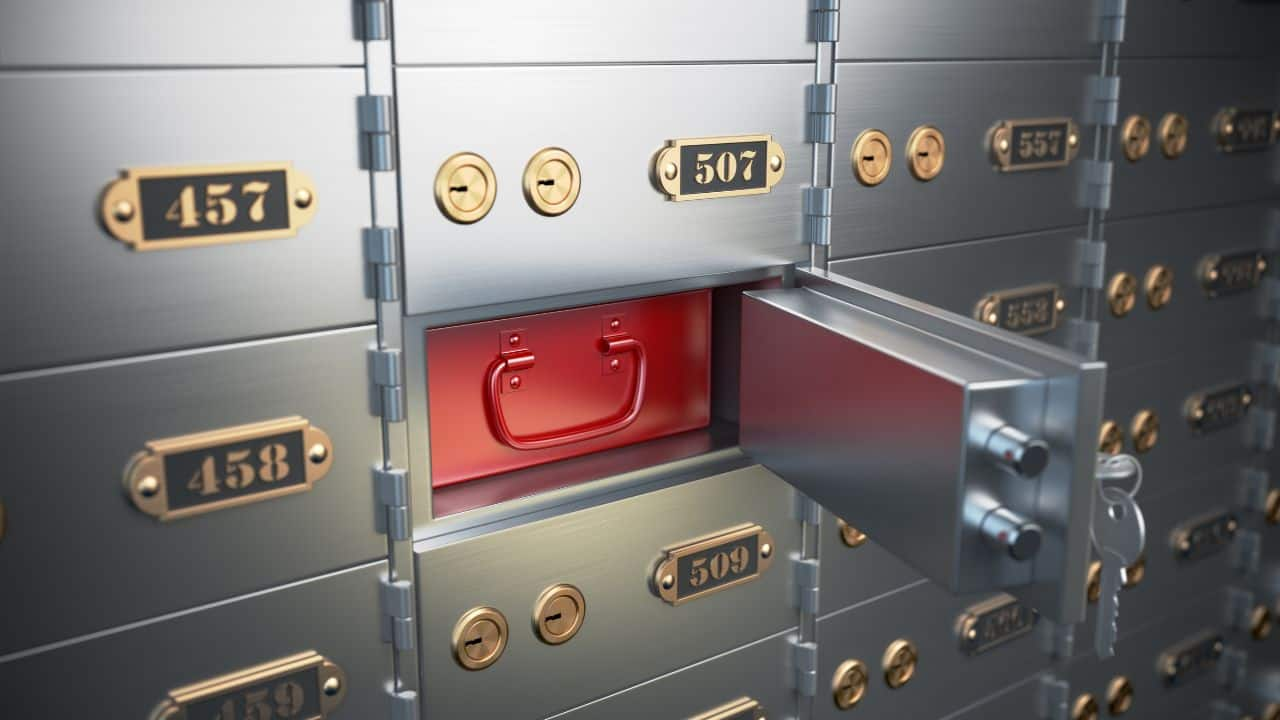



Whether it's family heirloom jewellery, title deeds, or the cash in an emergency fund, a bank locker seems like the safest place to store what's important. Before you dash to the nearest branch, though, it pays to know how lockers actually work. From eligibility and charges to security limitations and RBI regulations, there are some neat-print facts you'll want to get to know to avoid unwelcome surprises later on.

Bank lockers offer safety—but with terms
Bank lockers are the most sought-after choice to safely keep valuables like jewellery, papers, and family antiques. But while they bring peace of mind, lockers come with duties, terms, and fees that most customers overlook. If you're considering renting a bank locker, here's what you need to know about how they operate, your rights, and precautions to take. Here's an all-inclusive guide to help you make an informed decision.

Locker allotment is not guaranteed
Banks are not required to allocate a locker to every customer. Allocation is generally based on availability, and preference is given to customers with fixed deposits or a long-standing relationship with the bank. Some banks maintain a waiting list, and you may be required to make a formal application to be placed on it. RBI rules now require banks to maintain clear records of allocations of lockers and waiting periods.

You will need a KYC-compliant savings account
In order to access a bank locker, you have to hold a savings or current account in the same branch and complete Know Your Customer (KYC) procedures. This requires providing valid identity proof, address proof, and passport photograph. Joint lockers are also permitted and are
ideal for families. Just remember that only the registered owners can access the locker, unless the nomination has been completed.

There are annual charges and penalties
Locker rental is not cost-free. Banks charge annual fees based on the size of the locker and branch office—city branches charge more. Fees usually range from ₹1,500 to ₹10,000 plus GST annually. Banks charge penalties if you default on rent payment. Banks even request customers to keep a minimum balance or fixed deposit as security against the locker.

Banks are not fully accountable for your valuables
The Reserve Bank of India (RBI) made it clear that the banks themselves are not liable for the contents of a locker without proven negligence—like a break-in due to poor security. RBI does insist, however, that if there is proven negligence, then banks need to pay up to 100 times the rent of a locker annually. Still, it's safest to keep such extremely valuable items away from lockers and otherwise insure your valuables independently.

You need to use the locker regularly
As per RBI norms, a locker must be availed of at least once within a period of twelve months. If not utilized for over seven years (rent unpaid), the bank can declare the locker "unclaimed" and may open it forcibly after issuing notice and following procedure. Ongoing maintenance and payment of rent ensure uninterrupted usage as well as avoid unwarranted complications.

Always select someone you can trust
It is not only necessary but also a good idea to have a nominee in your locker contract. In case of the unthinkable, a nominee can access the locker with minimal legal formalities. Without one, your heirs might have to undergo lengthy procedures to open it. Worry not; you can add or change the nomination anytime by submitting a simple form to the bank.

Know the rules to stay protected and stress-free
Having a bank locker is a safe and trouble-free means of protecting your valuables—but there are duties attached. Be familiar with the fees, security limitations, and functioning guidelines before making the reservation. A little knowledge will go a long way in assuring your peace of mind as well as protecting what is dearest to you.
Discover the latest Business News, Sensex, and Nifty updates. Obtain Personal Finance insights, tax queries, and expert opinions on Moneycontrol or download the Moneycontrol App to stay updated!
Find the best of Al News in one place, specially curated for you every weekend.
Stay on top of the latest tech trends and biggest startup news.